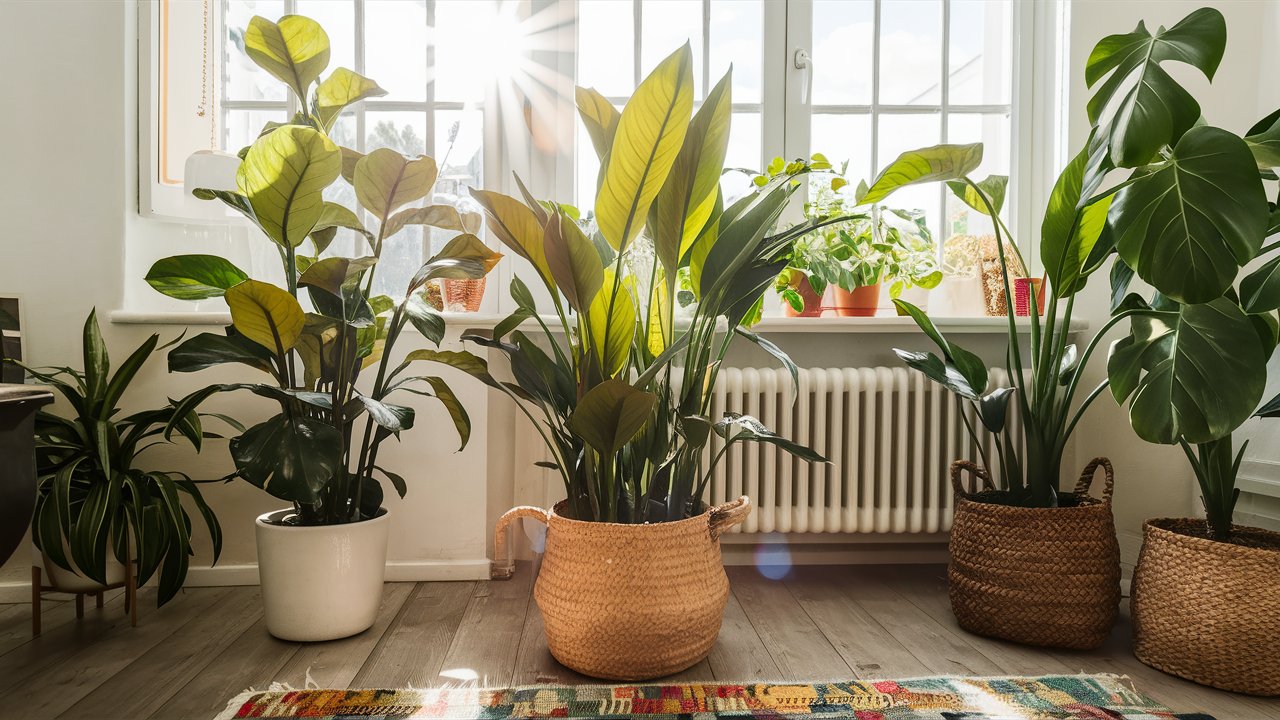Disclosure: Some links on this site are affiliate links. As Amazon Associates, we earn from qualifying purchases (at no cost to you).
The question of whether plants feel pain has intrigued scientists, philosophers, and regular folks alike for centuries.
As humans, we often project our own experiences onto other living beings, leading us to wonder if the plants we care for and sometimes munch on have their own ways of experiencing pain.
To answer this question, we need to dive into the biology of plants, the nature of pain, and some cool scientific discoveries.

Understanding Pain
First off, what exactly is pain? In humans and animals, pain is a sensory and emotional experience associated with actual or potential tissue damage.
It’s a complex phenomenon involving the nervous system, including special nerve cells called nociceptors that detect harmful stimuli.
These signals are processed in the brain, leading to the conscious experience of pain. Think about the last time you stubbed your toe and felt that sharp, immediate discomfort – yep, that’s pain in action.

The Biology of Plants
Plants are fundamentally different from animals in many ways. They lack a nervous system, brain, and nociceptors.
Without these components, it seems unlikely that plants experience pain as animals do. But hold on – plants are far from passive green statues. They respond to their environment in remarkable ways, often resembling a form of sensory perception.

Plants’ Responses to Damage
Plants can detect and respond to damage. For example, when a plant is injured, it can release signaling molecules like jasmonic acid, which kickstart defensive responses.
These responses can include producing toxins to deter herbivores or releasing volatile organic compounds to attract predators of those herbivores.
So, while plants don’t scream in agony when you trim their leaves, they do have sophisticated ways of reacting to harm.
Imagine if every time you cut your hair, it released a smell to attract spiders to scare off the person cutting it. Weird, right?

The Plant “Nervous System”
Though plants lack a true nervous system, they do have a network of signaling pathways that serve a similar function.
Electrical signals in plants can travel through their tissues in response to stimuli, much like nerve impulses in animals. For instance, the sensitive plant (Mimosa pudica) quickly folds its leaves when touched, demonstrating a rapid response to physical contact.
It’s like the plant version of jumping when someone yells “Boo!”

The Role of Calcium
Recent research has shown that calcium plays a crucial role in plant signaling. When plants are damaged, there’s a rapid increase in calcium ions at the injury site.
This spike in calcium acts as a distress signal, prompting the plant to activate its defense mechanisms. It’s kind of like how our bodies rush white blood cells to a cut.

Do Plants Feel Pain?
So, do plants feel pain? Well, it depends on what you mean by “pain.” If we’re talking about the human experience of pain, then no, plants don’t feel pain. They don’t have brains or nervous systems to process those sensations.
But if we think of pain as a type of stress response, then yes, plants do respond to damage in complex ways that help them survive.
Plant Intelligence and Memory
There’s also some fascinating research suggesting that plants have a form of “memory.”

Plants can “remember” past stress events and respond more effectively to similar stress in the future. For example, a plant that has been exposed to drought conditions might become more efficient at conserving water the next time it faces a dry spell. It’s like the plant version of learning from experience.
Ethical Considerations
Even though plants don’t feel pain like we do, some people argue that we should still consider their well-being.
Plant ethics is a growing field that explores how we interact with and impact plant life. While it might sound a bit out there, it’s worth thinking about how our actions affect all living things, even those without brains.
Fun Fact
Here’s a fun fact to lighten things up: Did you know that talking to your plants might actually help them grow? It’s true!

While they’re not eavesdropping on your gossip, the vibrations from your voice can stimulate growth. So, next time you’re feeling chatty, have a conversation with your fern. It won’t judge you, promise.
Final Thoughts
In conclusion, while plants don’t feel pain in the way animals do, they do have sophisticated ways of responding to their environment and protecting themselves from harm.

Their reactions to damage are more about survival and adaptation than the emotional experience of pain. So, go ahead and trim those leaves, but maybe give your plant a little extra love and care afterward.
After all, they’re doing their best to survive in this crazy world, just like us.

FAQ
Q: Do plants scream when cut?
A: No, plants don’t scream. They do release certain chemicals when damaged, but this is more like a distress signal to trigger defense mechanisms, not an audible scream.
Q: Can plants communicate with each other?
A: Yes, plants can communicate through chemical signals. For instance, a plant being eaten by insects can release chemicals that warn neighboring plants to ramp up their defenses.
Q: Do plants respond to music?
A: Some studies suggest that plants can respond to music and vibrations, showing increased growth or changes in behavior. So, playing Mozart for your marigolds might not be such a bad idea!

Q: Are some plants more sensitive to touch than others?
A: Yes, certain plants like the sensitive plant (Mimosa pudica) and Venus flytrap have rapid responses to touch, showcasing a unique sensitivity.
Q: Should we worry about hurting plants when gardening?
A: While plants don’t feel pain like humans, it’s always good to handle them with care to avoid unnecessary stress and promote healthy growth.
In the end, whether you’re a seasoned gardener or just starting out, understanding how plants respond to their environment can help you care for them better. Happy gardening!


